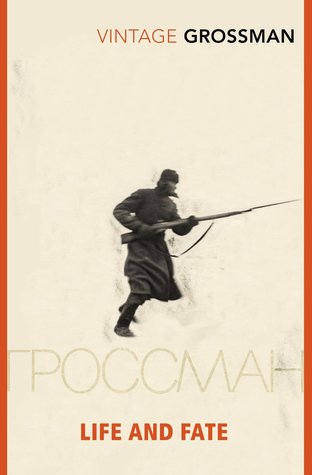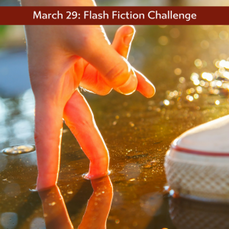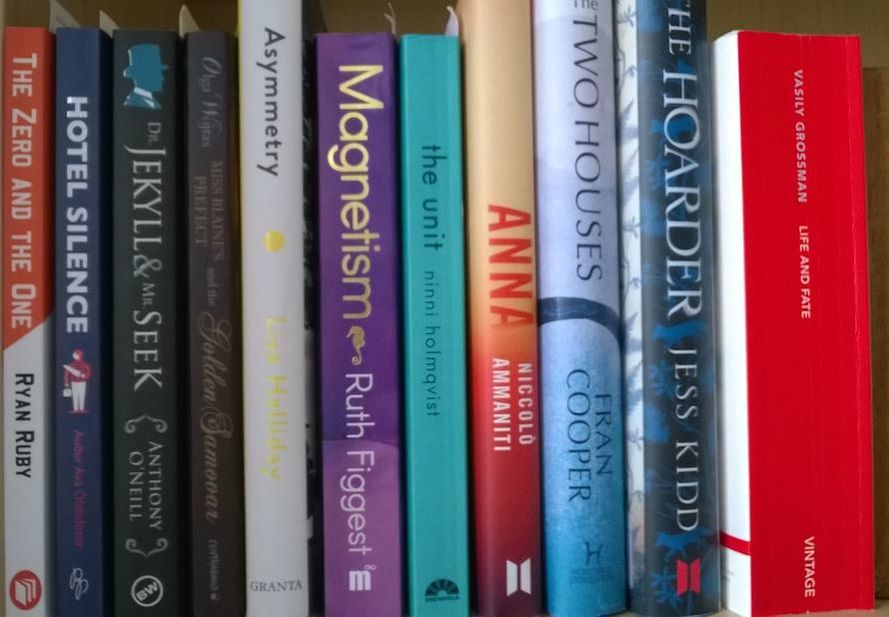| If I’m lower on reviews this month, blame my book group! We’ve been ploughing through a Russian novel that gets mentioned in the same breath as War and Peace, although Vasily Grossman’s Life and Fate was written in the twentieth century and concerns a war still within living memory. An epic tale of the human costs on both sides of the Battle of Stalingrad, it’s a fine achievement in its scope and in exposing the similarities between totalitarian states across the ideological divide. As with a short story collection recently smuggled out of North Korea, it faced a turbulent journey to publication, having been confiscated by the KGB on completion in 1960 and not published until twenty years later, long after the author’s death. But am I glad to have read it? I can’t honestly say I am. |
To be fair, it’s not so much that the novel is boring, but that – with multiple plots, multiple characters (each with multiple Russian names, although Miss Blane’s Prefect did provide a tutorial on this topic partway through my reading) – it demands more of the reader than I was inclined to give. Noting somewhere in the introduction that the author was disappointed not to have had the opportunity to edit his work, I felt a strange nostalgia for those “condensed” books published by Reader’s Digest, despite having scorned them whenever they came my way.
Of course, it’s extremely poignant in places, in particular the step-by-step unfolding of the Nazi extermination process, from the design and construction of the gas chambers to the disposal of the bodies, which (perhaps influenced by Grossman) Rachel Seiffert addressed in a similar way in A Boy in Winter, published last year. In his fairhanded way, Grossman also shows how Soviet scientists were co-opted into a system which values ideology over objective observation, in the trials and triumphs of nuclear physicist Viktor Shtrum, believed to be based on the author himself.
But I didn’t set out to write a review of Life and Fate, but to discuss the pros and cons of reading the classics. As I’ve mentioned before, despite having enjoyed several of George Eliot’s novels, I recently found Romola tedious, and I totally missed the point of The Good Soldier. I devoured lots of classic novels in my youth, even Russian ones (although not Tolstoy), but I’m more familiar with Dickens on the screen than on the page. And I’ve never quite recovered from having pushed myself through Moby Dick at a time when I wasn’t fit to tackle anything more challenging than Agatha Christie.
Not every classic novel is exceedingly lengthy but they often employ a discursive (rambling) style that doesn’t sit well with the modern reader (or me). Yet I can’t help feeling that, like the daily dose of cod liver oil of my youth, they’re somehow good for us. That enjoyment or otherwise is irrelevant; some hypothetical omnipotent being sits on our shoulder and commands us to plough on. Or is that simply the ghost of my Catholic childhood?
What’s your view on this? Do you enjoy classic novels? Would you plough through if you don’t? Is it enough to be familiar with the story through dramatisation? What’s your position on condensed books? Let the discussion begin!
| Over at the Carrot Ranch, Charli invites us to write a 99-word story about fingers that fly. For my contribution, I’ve thought about people for whom reading isn’t as much fun as it could be. No prizes for guessing who Miss is based on! |
Ma made me read ten pages. Every. Single. Night. At first I tried. Really. But with shape shifting letters, disappearing words and baffling sentences, I preferred to watch cartoons. Still, she made me. I learnt to screen a soccer game in my head while staring at the text until it blurred. Flying fingers flicked through pages one to ten. Done!
Books, magazines, how I hated them. Until Miss asked me to show her a football programme. Explain how my team won the match. Print still jumped about and disguised itself. But now I want to discover what it says.
| I’ve met four of the five targets I set myself earlier this year with a whopping 9 (target ≥ 50%) from independent publishers; 3 (target ≈ 20%) translations; 7 (target ≥ 50%) by female authors; one potential favourite (Miss Blaine’s Prefect and the Golden Samovar). Unfortunately, as last month, I haven’t read anything by a BME author. Hope to put that right next month. |
























 RSS Feed
RSS Feed





















